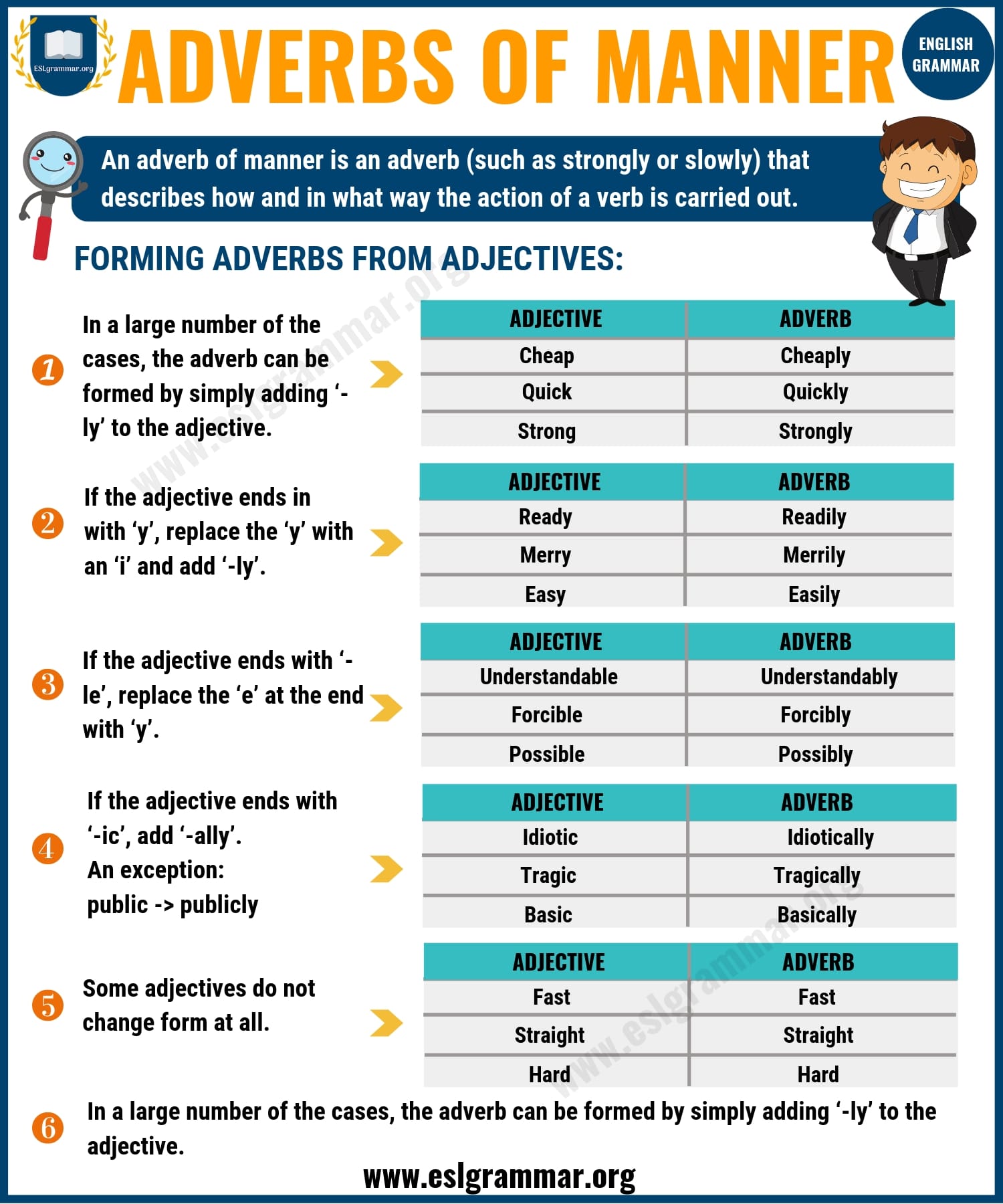Adjective vs. Adverb Review
Adjectives describe nouns (things).
- My dog is slow.
Slow is an adjective since it describes the subject (my dog).
How is my dog? Slow
Adverbs describe verbs (actions).
- My dog eats slowly.
Slowly is an adverb since it describes the way my dog eats.
How does my dog eat? Slowly.
For details see our page about Adjectives vs Adverbs.
Adverbs -LY
Adverbs are normally formed by adding -LY to the end of an adjective.
E.g. Quick - Quickly
For adjectives that end in -l or -e, we simply add -ly:
| special + ly | = specially |
| terminal + ly | = terminally |
| literal + ly | = literally |
| nice + ly | = nicely |
| polite + ly | = politely |
There are of course some exceptions:
| true | truly |
| whole | wholly |
| due | duly |
| full | fully |
Adverbs ending in -Y
For adjectives that end in -y, we remove the -y and add -ily:
| crazy | crazily |
| happy | happily |
Adverbs ending in -LE
For adjectives that end in a consonant + le we remove the -e and add -y:
| terrible | terribly |
| horrible | horribly |
| noble | nobly |
| idle | idly |
Adverbs ending in -IC
If the adjective ends in -ic, we add -ally:
| ironic | ironically |
| enthusiastic | enthusiastically |
| realistic | realistically |
Except: public - publicly
Irregular Adverbs
Some adverbs are irregular:
| Adjective | Adverb | Example |
|---|---|---|
| fast | fast | The man drives very fast (quickly). |
| good | well | You speak English very well. |









0 Comments